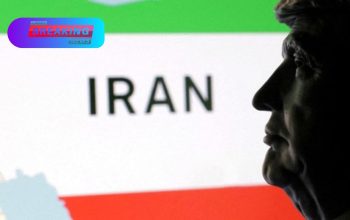France Releases Terrorist Georges Ibrahim Abdallah, a move that has quickly made global headlines and triggered swift condemnation from the United States. Abdallah, a Lebanese militant convicted for terrorist activities, spent over three decades behind bars in France. His release has been labeled a “big mistake” by U.S. officials and has reignited debates over international security cooperation, justice, and the broader implications for diplomatic relations.
Who Is Georges Ibrahim Abdallah and Why France Releases This Convicted Terrorist?
Georges Ibrahim Abdallah is a controversial figure known for his militant activities in the 1980s. He was convicted in France for his involvement in the assassinations of American and Israeli diplomats. Abdallah has remained imprisoned for over three decades, becoming one of the longest-serving prisoners in Europe for terrorism-related crimes.
His supporters argue that Abdallah fought for the Palestinian cause and should be freed, while opponents see him as a dangerous terrorist whose release threatens global security. His case has long been a point of tension between various governments.
France Releases Terrorist Georges Ibrahim Abdallah: Legal Basis and Public Reaction
After serving more than 30 years in prison, French authorities decided to grant Abdallah parole. The decision followed a legal review and recommendations from judicial authorities who assessed his behavior and potential threat level.
French officials emphasize that the release complies with the country’s justice system and respects human rights standards. They argue that Abdallah’s long incarceration fulfills the sentence requirements under French law.
However, critics fear that this move may send a negative message about France’s commitment to combating terrorism.
US Calls France’s Release of Terrorist Abdallah a “Big Mistake”
The United States government quickly condemned France’s decision. In an official statement, the US called the release a “big mistake,” highlighting concerns about national and international security.
US officials stressed that Abdallah remains a threat due to his past actions and ideological stance. They worry that his freedom could encourage extremist groups or undermine efforts to fight terrorism globally.
The US also expressed disappointment over the lack of consultation before the release, suggesting that France’s decision could harm transatlantic cooperation on security issues.
How the Release of Georges Ibrahim Abdallah Affects France-US Relations
This incident may strain diplomatic relations between France and the United States. Both countries have historically collaborated on counterterrorism, intelligence sharing, and security policies.
French authorities, however, defend their legal sovereignty and insist that the release follows judicial protocols without political interference.
Experts warn that unresolved tensions could affect future collaboration in areas beyond security, including trade and international policy coordination.
France Releases Terrorist Georges Ibrahim Abdallah: What It Means for Global Counterterrorism
The release of Georges Ibrahim Abdallah opens a wider debate on how justice systems handle terrorism cases, especially those involving political motives.
Some human rights advocates argue that prolonged imprisonment without parole violates basic rights. Others emphasize that public safety must remain a priority.
Governments worldwide face challenges balancing punishment, rehabilitation, and the prevention of radicalization.
Conclusion
France’s release of Georges Ibrahim Abdallah has ignited controversy, with the US branding it a “big mistake.” This event highlights the complex challenges of addressing terrorism through legal frameworks while maintaining international security partnerships.
As both nations navigate the fallout, observers will watch closely to see how this decision influences future cooperation in the fight against terrorism.



